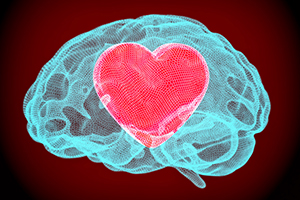
In the past few months, several friends have commented on their insomnia, night leg cramps, depression, migraines and brain fog. Did you know that these can often be symptoms of magnesium deficiency? Did you know that magnesium is the fourth most abundant mineral in the human body? It truly plays a big part in the health of one’s body.

Magnesium is key for optimal brain and heart functioning.
Even when we think we’re getting enough nutrients through our food, we may actually be deficient. Outside of bone, the highest tissue concentrations of magnesium (Mg) are in the two organs with the highest electrical activity: the heart and the brain. Both are vulnerable to magnesium insufficiency.
Magnesium is a big deal!
What is Magnesium?
- Magnesium is a mineral found in humans, animals, plants, the sea and the earth
- Roughly 60% is found in our bones, but also soft tissue, muscles and blood
- Is one of seven essential macrominerals that our bodies need in abundant quantities. Our bodies don’t produce magnesium and if we’re deficient, this can throw off many of our functions, raising the risk for chromic health problems.
- Every single cell in our bodies needs magnesium to function properly
What Does Magnesium Do in the Body?
This list may look long, but doesn’t that tell you how many functions magnesium impacts in our bodies?

Magnesium can help with depression and age-related dementia.
Magnesium:
- Provides energy creation and helps convert food into energy
- Helps create new proteins from amino acids
- Helps create and repair DNA and RNA
- Helps in the contraction and relaxation of muscles (restless leg syndrome)
- Helps fight depression (In recent studies, 450 mg of magnesium daily improved mood as effectively as an antidepressant drug)
- May reduce risk of dementia and Alzheimer’s (Recent research suggests that magnesium plays a role in neuroplasticity, and that supplementation with this important mineral could help to prevent Alzheimer’s other age-related dementia)
- May boost exercise performance, increasing red blood cells and hemoglobin in athletes
- Helps reduce stress hormone levels
-

Highest magnesium intakes show 47% less likely to develop diabetes. A significant study!
Helps protect Against Type 2 Diabetes (A study showed that those with the highest magnesium intakes were 47% less likely to develop diabetes. In addition, those with Type 2 experienced huge significant improvements in blood sugar management)
- Helps in lowering blood pressure-higher blood pressure increase risk for heart disease and stroke
- Helps reduce chronic inflammation
- Helps prevent migraines (in one study, even 1 gram of magnesium offered relief more quickly and effectively than a common medication
- Helps improve PMS symptoms (premenstrual syndrome) by reducing water retention, improving mood and fatigue and reducing abdominal cramps
- Helps promote sleep. Magnesium increases GABA, a neurotransmitter that promotes sleep (roughly 25% of Americans suffer with chronic insomnia)
- Helps in bone development and protects against bone loss, aiding with absorption of Vitamin D and calcium. Deficiency has been linked to osteoporosis
- Helps with gut health
- Helps in reducing anxiety, calms the mind
- Helps reduce fibromyalgia pain
-

Magnesium supplements can reduce symptoms of ADHD in children too
Helps in reducing ADHD symptoms in children
- Helps improve digestion
- Provides for heart maintain healthy rhythm (higher dietary magnesium intake is linked to significantly reduced mortality in people at high risk for cardiovascular disease)
Who is at Higher Risk to Be Magnesium Deficient?
- Those with gastrointestinal diseases like Crohn’s and celiac
- Those with type 2 diabetes
- Those with long-term alcoholism
- Older People
How to Get Magnesium from Food
Try these:
- Legumes*, dark leafy greens like spinach and kale, nuts, whole grains, avocados, dried fruit and dark chocolate
- Some fortified breakfast cereals
- Milk*, yogurt and some other milk products (organic is preferred)
- Fish*
Food Sources and their Recommended Daily Allowances:
-

Certain foods provide excellent sources of magnesium.
Pumpkin seeds: 46% (in a quarter cup)
- Cooked spinach*: 39% (in a cup)
- Cooked Swiss chard: 38% (in a cup)
- Black beans: 30% (in a cup)
- Dark Chocolate: 70-85% cocoa: 33% (in 3.5 ounces)
- Cooked Quinoa: 33% (in a cup)
- Halibut*: 27% (3.5 ounces)
- Almonds: 25% (quarter cup)
- Cashews: 25% (quarter cup)
- Mackerel: 19% (3.5 ounces)
- Avocado: 15% (one medium avocado)
- Salmon*: 9% (3.5 ounces)
*Many fruits and veggies are doused in chemical pesticides. Antibiotics and hormones are found in a lot of dairy products and in farmed raised fish. I tend to choose organic in those categories.
What about Magnesium Supplements?
For many years I suffered with night leg cramps and insomnia several times a month. My diet has always been pretty good and I’ve always loved my greens. Somewhere along the way I ended up magnesium deficient (and that’s a whole other story regarding the soil our plants are grown in). Once I started taking Magnesium supplements, my leg cramps went away TOTALLY.
Recommended Supplement Dosages

Magnesium supplements can enhance your food intake.
Surprisingly (to me) almost 80% of adults are magnesium deficient, according to some experts. Over the last 100 years, daily dietary intake of Mg has decreased from 500 mg to about 200 mg, largely due to high consumption of nutrient-poor processed foods, and chemically-treated crops grown in depleted soil.
The recommended daily amount of magnesium is 320 mg for women over 30, and 420 mg for men over 30. If one is not getting this amount from food, perhaps a supplement may be in order. It’s always a good idea to check with your doctor, but also best to start at the lowest doses suggested and increase as needed.
For general health, sleep and stress: 100-350 mg daily*.
*I personally take mine at night along with calcium to be as active in my system, especially for the night cramps and while my body is in rest mode.
Consulting with your Doctor

Be sure to check with your doctor for proper dosing.
If you have any of these medical conditions, consult with your doctor:
- Pregnancy or breast feeding
- Bleeding disorders
- Heart blockages
- Kidney problems
- Water retention
- Heart issues
- Taking antibiotics
It’s always important to check with your doctor, especially if you’re on medications and other supplements that might interact negatively with a magnesium supplement.
Can I Take Too Much Magnesium?
An excess of dietary sources is typically eliminated through our urine. However, too much in the way of supplements can result in nausea, cramping and loose stools. They can also cause kidney problems and other serious health issues if taken in very large dosages. Again, a good place to start is with your doctor or take a small dosage.
In Summary
This is one of my longer posts and I thank you for taking the time to read it. It’s longer because, as I hope I’ve shown, Magnesium Matters!
 In recommending this amazing mineral recently to friends who’ve had leg cramps, migraines, insomnia and depression and in hearing their positive feedback, it became clear that I needed to write about this. Perhaps you or someone you love could find major relief by just adding this supplement to their diet. Please share.
In recommending this amazing mineral recently to friends who’ve had leg cramps, migraines, insomnia and depression and in hearing their positive feedback, it became clear that I needed to write about this. Perhaps you or someone you love could find major relief by just adding this supplement to their diet. Please share.
And don’t forget your DARK Chocolate! It matters 🙂
![]()
If you “Like” this post, I’d be thrilled if you’d share it.
Sources:
Healthline: Risks of too Little Magnesium
Holistic Primary Care: Krystal Krisciunas, “Magnesium Has Role in Reducing Dementia Risk”
National Institute of Health: Office of Dietary Supplements “Magnesium”
Science Daily-Insomnia
The Sleep Doctor – Michael J. Breus PhD
USDA-Nutrient list for Magnesium
SEP
